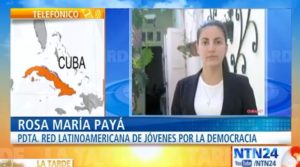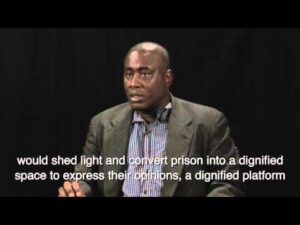The whereabouts of hundreds of arrested demonstrators in Cuba is unknown and others are being held incommunicado without charges nine days after nationwide demonstrations rocked the country, the Wall Street Journal’s Santiago Pérez reports:
Cuban police have arrested an estimated 500 demonstrators and activists who were among thousands who poured into the streets on July 11 to protest against deteriorating living conditions, the lack of freedoms, and scarcity of basic goods and services including Covid-19 vaccines under the Communist regime. The government responded to the protests by cutting internet and phone services and deploying so-called rapid-reaction brigades, police and Communist Party militants to take back control of cities and towns.
 Authorities have said demonstrators will face summary trials behind closed doors, which gives defendants and their attorneys little time to study charges or present evidence. Prisoners Defenders, a Madrid-based legal action advocacy group, said the Cuban procedure “flagrantly violates the guarantee of due process.”
Authorities have said demonstrators will face summary trials behind closed doors, which gives defendants and their attorneys little time to study charges or present evidence. Prisoners Defenders, a Madrid-based legal action advocacy group, said the Cuban procedure “flagrantly violates the guarantee of due process.”
The U.S. State Department is reviewing its plans to bolster staffing at the US Embassy in Havana “to facilitate diplomatic, consular and civil society engagement, and an appropriate security posture,” an official said.
“This is the first time that Cuba has really risen up and protested the government,” Dr. Danielle Clealand told theGrio. “And so it’s a really exciting moment. And it’s also a very scary moment because we don’t know what the state response exactly has been and we don’t know what it will be.”
 “And so I think if nothing else, this has changed the perspective of the government, said Clealand, author of “The Power of Race in Cuba: Racial Ideology and Black Consciousness During the Revolution.” This has changed the perspective of the people. And so I think that hopefully if there can be a sustained kind of movement, then maybe something can happen where real political reforms can be made.”
“And so I think if nothing else, this has changed the perspective of the government, said Clealand, author of “The Power of Race in Cuba: Racial Ideology and Black Consciousness During the Revolution.” This has changed the perspective of the people. And so I think that hopefully if there can be a sustained kind of movement, then maybe something can happen where real political reforms can be made.”
‘Ideological spin’
Cuba Directorio’s Orlando Gutierrez-Boronat ridiculed 1619 Project founder Nikole Hannah-Jones’s claim that Cuba has the ‘least inequality’ thanks to its socialist policies.
‘Her assertion that what she says is “equality” is largely due to socialism is ideological spin. That doesn’t reflect the reality of Cuban history,’ Miami-based Gutierrez-Boronat told DailyMail.com.
‘What she is saying shows how little she knows about Cuba and how they [some pressure groups] use Cuba to promote Marxism. They use Cuba’s plight to promote Marxism. They don’t care about Cuba, they care about their own ideology,’ he added.

Credit: YouTube screen grab
The regime’s systematic racism helps explain why Afro-Cubans like 2009 NED Democracy Award winner Jorge Luis Peres ‘Antunez’, (right), Oscar Biscet, Bertha Soler, Guillermo Farinas, Laritza Diversent and Manuel Cuesta are major leaders of the democratic opposition and dissident movement.
Social media has been an essential factor in organizing the wave of protests, the Journal’s Anthony Harrup and Pérez add. Relatively new to the island, it has empowered a young generation of Cuban activists who use it to spread their ideas and organize protests. As demonstrators sought to broadcast the current protests live with their cellphones, authorities cut internet service on several occasions. Kentik, a U.S.-based network monitoring company, reported countrywide internet outages July 11.
After a first stage in which demonstrators were attacked and detained by security forces, the Cuban government is now erecting a legal façade to legitimize its actions, the Journal’s Pérez adds.
“In light of the image problem that the government currently has on the international stage, it’s now resorting to criminal charges akin to the Spanish Inquisition, labeling political prisoners as criminals and terrifying the population,” said José Miguel Vivanco, Americas director for Human Rights Watch.
Vivanco and Ms. Rosa María Payá Acevedo, Director of Cuba Decide, address a House Foreign Affairs Committee hearing on The Crackdown on Artists and Free Expression in Cuba (below).







